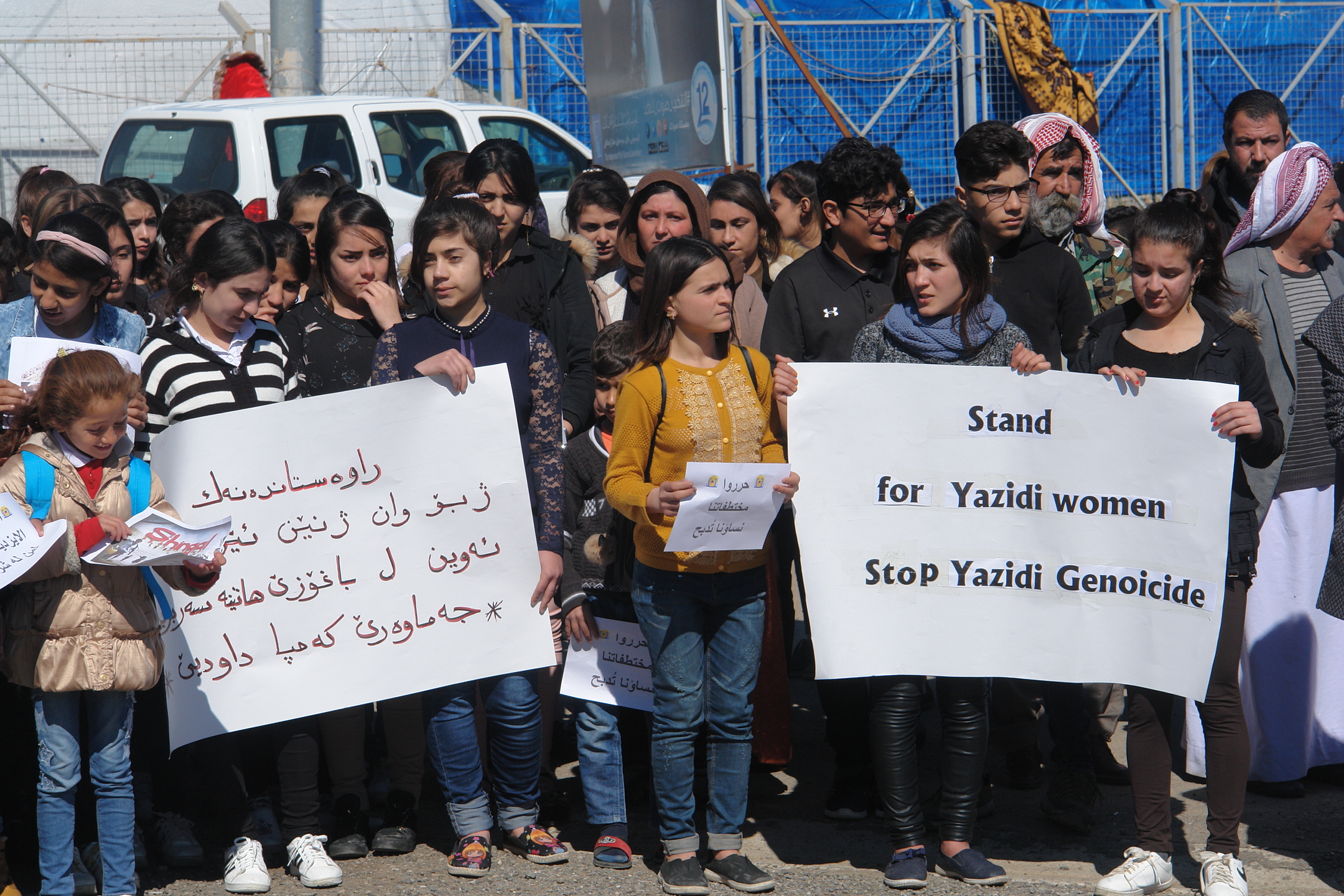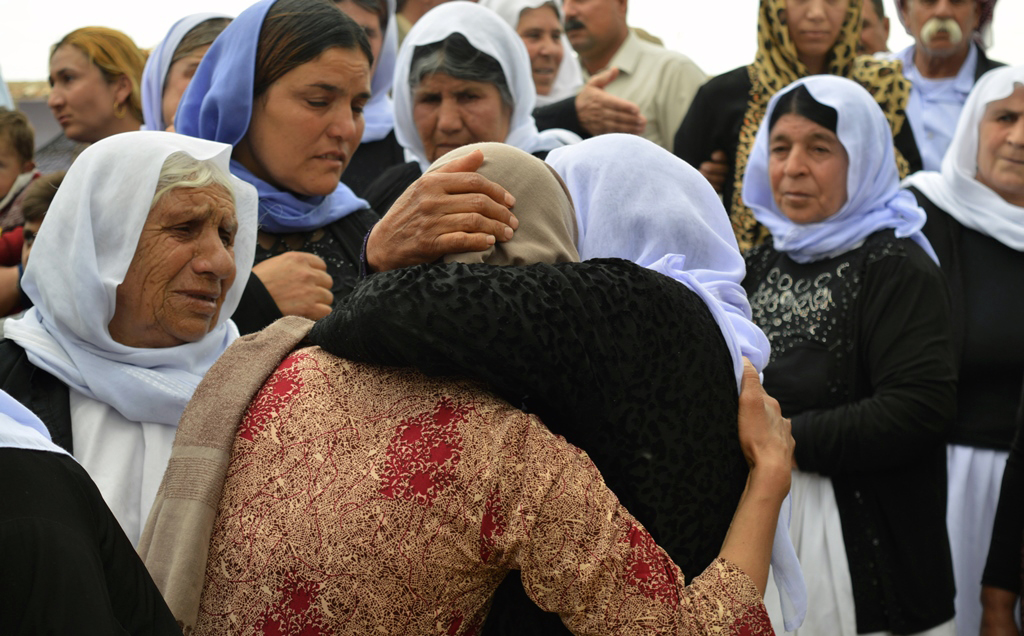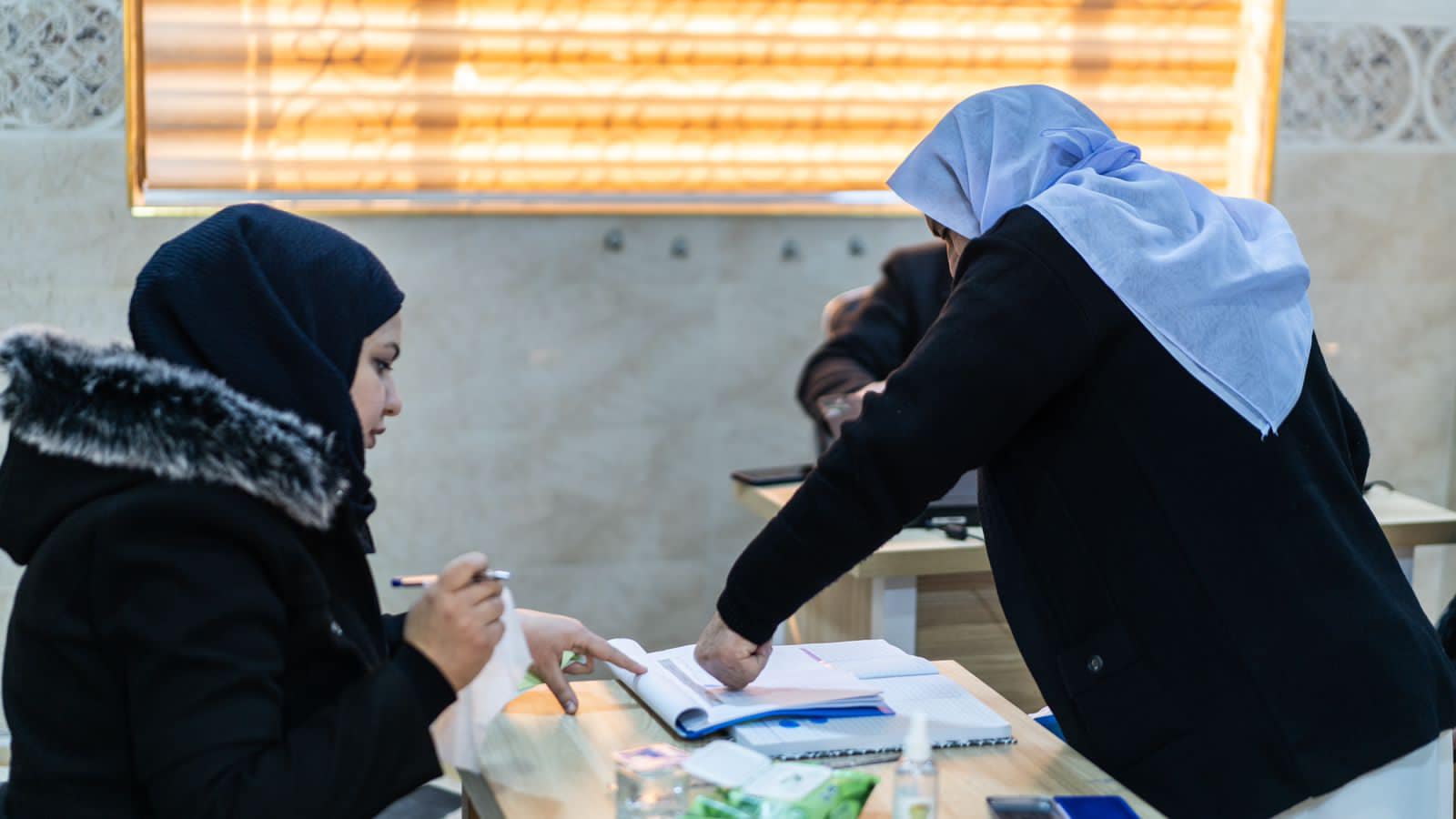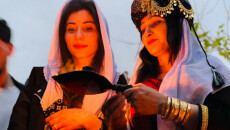The Ezidi (Yazidi) women survivors are reluctant to accept amendments to Ezidi Women Survivors’ Law, saying it is "unfair" to change the content of the law after a draft amendment was sent to the Iraqi parliament.
The amendment to the law on Ezidi survivors has been prepared by the presidency of the republic to change a number of articles and clauses, but has not yet been included in the agenda of parliamentary sessions.
Shiwan Mohammed Rostam, deputy chairman of the committee on martyrs, victims and political prisoners in the Iraqi parliament told KirkukNow, “This bill was received from the presidency and discussed in our committee in order to be submitted to the parliament presidency in order to enlisted for first reading and then second reading and vote on it.”
One of the key changes suggested in the amendment for law to covers victims and abductees ahead of the events of August 3rd, 2014, requesting to be changed to count from June 10th of that year.
The Ezidi Women Survivors' Law referred to the Iraqi parliament by the former Iraqi President Barham Salih in March 2019, provides support and rehabilitation for the community, particularly the female members who escaped Islamic State in Iraq and Syria ISIS abduction and slavery.
The law provides financial compensation for female and male survivors while it has not addressed other more sensitive issues, such as dealing with children who were the results of IS sexual abuse.
The law has outlined an office to be managed by an Ezidi to undertake the mission of receiving documents from the victims for the purpose of their compensation and providing a prosperous life.
IS militants took control of Shingal district in August 2014, enslaved 6,417 Ezidis, including 3,548 girls and women. The fate of 3,562 people is still unknown, including 1,207 girls and women, in addition to 2,016 children of both sexes. The fate of 1,693 abductees remains unknown, 1,262 of whom are female, according to the latest statistics of the Kurdistan Regional Government KRG.

The displaced Ezidis in Dawoodi camp demand the release of missing Ezidis, Duhok, 2019. KirkukNow
“It is the only law passed in the interest of the Ezidis, but some people and parties want to destroy us,” Hala Safil, an Ezidi girl who survived ISIS atrocities, told KirkukNow. “No girl or woman has fallen into the hands of Daesh ahead of August 3rd, so why they want to change the date?”
Hala and several friends launched the hashtag "No to Changing the Survivors Act" to prevent the amendment.
"We will have other activities in the future and we will convey the issue to the United Nations, Iraqi officials and the whole world, so that the law is not changed, because it has created fear and anxiety among the survivors," she added.
The law includes not only Yazidis, but all survivors of Yazidis, Turkmen, Christians and Shabak communities, who were enslaved by the extremist militants of the ISIS – Daesh - and liberated from captivity or survived the mass killing campaigns.
It also includes all children under the age of eighteen of both sexes.
Ezidi survivors are concerned about attempts to amend the law
Hala says the implementation of the law is "slow" and some of the survivors have not yet been allocated salaries.
A number of the survivors have received their salaries and residential land has been allocated for distribution within the framework of the law.
"The amendment of the law is another injustice against the Ezidis... We will do our best to oppose it," Faisal Afdo, a Ezidi activist in Shingal, told KirkukNow.
In addition to the Ezidi abductees, statistics of local activists and civil society organizations in Tal Afar obtained by KirkukNow earlier indicate that out of a total of 1,300 Turkmen abductees, including hundreds of women and children, only 84 of them were released, 23 of them were female.
According to statistics obtained by KirkukNow from the Directorate of Christian Affairs in the Ministry of Awqaf of the KRG, 62 Christians went missing during the period of ISIS control, 18 of whom are females.
KirkukNow was not able to obtain any statistics regarding the abductees or the survivors of the Shabak community.

An Ezidi survivor reunites with his family in an IDP camp, Duhok, 2019. KirkukNow
Ezidis are an ethno-religious minority over half a million people, mostly residing in Shingal, in northern Iraqi province of Nineveh. The militants of Daesh extremist group in 2014 attacked their communities, killing thousands of men and taking thousands of women and children, in an atrocity the U.N. said amounted to genocide.
IS used the women and girls as sex slaves. Tens of thousands of Ezidis are still living in Internally Displaced People IDP camps in Iraqi northern province of Duhok. Over 80 mass graves and tens of individual graves were found up today in Ezidi dominant towns in Nineveh Northern Province.
Mahma Khalil, an Iraqi parliamentarian from the Ezidi community, insists that no girls and women fell into the hands of ISIS before August 3, after which most of the kidnapped were Ezidis and a number of Turkmens.
Khalil said a group of lawmakers and political parties want to make changes to the law, especially changing the date of the events from August 3 to June 10, with the addition of other groups "They have not fallen into the hands of ISIS, but we are aware of their efforts and will not allow them to succeed.”
The law also includes the opening of a number of psychological centers for survival treatment, the return of women who have been excluded from school due to their abduction, and priority in employment.
"The Ezidis are mainly concerned about the date set on August 3 and demand to remain unchanged," said deputy chairman of the Martyrs and Victims Affairs Parliamentary Committee, "therefore, we stopped the discussion and we intend to meet and discuss the project with all communities.”
The law recognizes the incidents against the Ezidis as genocide, emphasizes the filing of complaints against the perpetrators of the crime and August 3 every year as a national day to recognize the incident, in addition to the Foreign Ministry to work to recognize the crime internationally.






